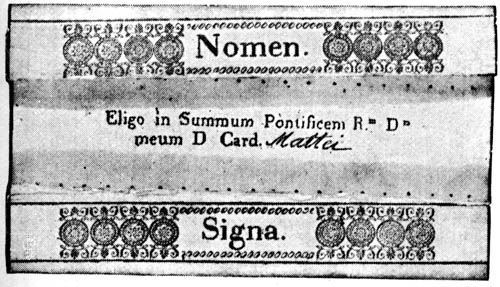Welcome Challenge
Fourth Sunday of the Year C (03 Feb 2013)
Homily of Fr. Paul Panaretos, S.J.
When consider how we act, we notice we often operate on automatic pilot: getting out of bed; making coffee; praying; pulling in the paper; getting ourselves to school and to work. We give those and many others little thought. At times we are unaware we do them—like breathing. At other times we may forget we’ve done them.
Our usual waking state isn’t the only way we are aware of the world around us; nor is it how we are more aware. We are more aware not on automatic pilot or attentively doing one of our tasks. We are more aware at certain frequencies we may call altered states of consciousness. Sometimes we enter altered states accidentally: indigestion; fever; trauma; when we’re deprived of sleep, of food, of oxygen. At other times altered states of clearer awareness occur naturally as they do in ecstatic moments; when we are sad rather than overjoyed; and when we dream.
As you know, we can intentionally alter our consciousness with alcohol and other chemicals. We also alter our conscious awareness as we relax, focus ourselves, pray, even exercise. None of those is novel; ancients knew them. Artists, poets, scientists, even preachers, make stunning connections while in altered states of awareness. Swimming opens my mind to be more receptive.
God communicates with us in all things. Humans seem more alert to God in altered states of conscious awareness. We happened on Jeremiah as he was more receptive. We heard him aware that God shaped his life in a prophetic way. Aware of the difficulty of the prophetic life, Jeremiah grew to know in his bones that I am with you to deliver you says, the Lord. Felt knowing as that fuels clear awareness and faithful action. Felt knowing as that is being aware.
God communicates with us, which is why we pray. We may not think praying alters our awareness, but it does. Giving God focused attention exercises our conscious awareness. Giving God focused attention helps us grow more alert to God inviting us to help fulfill the scriptures by our ways of living—while making coffee as well as here around Jesus’ altar-table.
Our baptism into Messiah Jesus makes us all prophets: people who proclaim with our lives the very mystery which transforms us, the death and resurrection of our Messiah Jesus. The effects of praying—which is not the same as mouthing prayers—the effects of praying make us more aware of the more real world of God’s desires for us, all people and our planet.
God’s desires both include us and reach beyond us. In moments of more clear and deep awareness, God’s desires challenge us. We may see them as challenge or as threat. What’s the challenge? What’s the threat? God is not just for me or you; or people like us; or those who side with us. God is for everyone; for people unlike us; for people holding opposite opinions; and especially for people who experience the world at its many margins.
This was Jesus’ prophetic message:
I am not only for the poor among you, I am for all the poor with every poverty;
I am not sent to release only you from bondage but for all who are constrained by every sort of bondage;
I am come not only to help you recover sight and gain deeper insight but do so for every person.
Indeed, the more blind, the more bound and the more needy have a greater claim on Jesus’ heart. If Jesus’ cosmic, prophetic message threatens us, we tend to isolate ourselves from Jesus and others. If we welcome his message as personal good news, we tend to welcome the challenge to witness to it by our deeds and our words. We witness for the sake of others and our world.
Diagnosing how we perceive Jesus’ prophetic communication opens the gospel. Those in the synagogue heard Jesus say the salvation he was bringing was not for them alone but for everyone beyond the boundaries of the Israel of his day. Jesus had announced he was a prophet like Elijah and Elisha who extended their prophetic visitation to Gentiles at the margins: Elijah was sent...only to a widow…in the land of Sidon; and of all the lepers Elisha healed only Naaman the Syrian. That Prophet Jesus addressed his message to all threatened his hearers. Threat resulted in fear so great it provoked them to fling him down the mountain on which their city stood.
In your daily 15 minutes with Jesus this week
- Give undivided attention to our triune God.
- Ask Elijah and Elisha to present you to Jesus.
- Open your heart to him. Chat with Jesus about how you receive Jesus’ universal loving concern; then name what prevents you from living it.
- Ask Jesus for grace to be a credible witness to his transforming love.
- Close saying slowly the Lord’s Prayer. Saying his words slowly helps our conscious awareness be clearer, more receptive and honest. His words transform us and enrich how we are with him and with others.
________________________________________________________________
 Lenten practices—fasting; deeper praying; almsgiving—are not ends in themselves. They are helps to open to transformation and to something countercultural: “accepting failure.” In Lent’s opening days Jesuit Brendan Busse considered that. As Lent progresses Jesus’ story keeps inviting Christians to that exercise.
Lenten practices—fasting; deeper praying; almsgiving—are not ends in themselves. They are helps to open to transformation and to something countercultural: “accepting failure.” In Lent’s opening days Jesuit Brendan Busse considered that. As Lent progresses Jesus’ story keeps inviting Christians to that exercise. 




.jpg/256px-Christ's_temptation_(Monreale).jpg)









